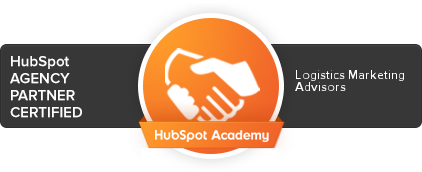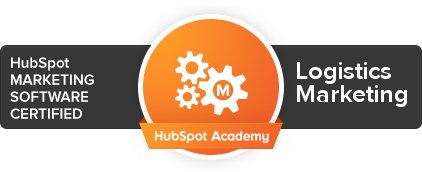I’ve been doing B2B marketing and PR for a long time, inside and outside the logistics industry. There are a lot of people doing it right, certainly. But at many logistics businesses, there seems to be an undercurrent of dissatisfaction about marketing’s role in driving growth.
- The boss doesn’t really understand how investments in marketing will pay off. “Double website visitors…?” “Bump conversions 12.5%...?” “Build out our YouTube channel…?” She just wants someone to make the link to sales and show her the numbers.
- The head of marketing is challenged to differentiate the company, but has little influence to shape the product or service. Kind of a dilemma for a “me too” type company. Also, most logistics businesses are not marketing-driven, so it’s tough to get busy senior staff to focus on things like “market positioning” and “brand promise” – foundational issues for marketing geeks like me, but absolute sleeping potions to many. So the marketing lead is challenged to get results by telling the same story as his competitors, using the same tactics to communicate to the same target prospects. Not exactly a formula for success.
- Sales representatives want more leads from marketing. They hate cold calling and fighting competitors for prospects’ attention at conferences and trade shows. They prefer following up with prospects who are already warm. They want a reason to call and a bead on the problem they can solve.
- Prospects are unhappy with communications from logistics suppliers. They are inundated with unsolicited sales calls and emails. They feel suppliers call with little to no knowledge of their industry or specific needs. And when they do call, they sometimes overpromise.
OK, so what do we do about all this unhappiness in the land of logistics marketing? Well, what if we focused on two areas:
- Get found by the people you DON’T know
- Proactively solve problems for the people you DO know (or would like to know)
The getting found part.
Today, logistics services are BOUGHT, not sold. Logistics decision makers are smart and have access to a wealth of information on how to solve supply chain problems and who can solve them. Much of the work they do in identifying potential partners takes place behind the scenes, before they engage with suppliers. They search online, they read articles, they consult with colleagues and industry analysts. Eventually they develop a short list of companies that they believe can help.
The marketing response to this new reality is not smiling, dialing and hoping for some magic. You need to figure out how to get found by prospects during this search phase. That means introducing new ideas, creating content that makes prospects smarter or makes them think, creating a truly remarkable solution that elevates your value above others. In short, giving prospects a reason to FIND YOU. In the process, you position your company as a thought leader (boss happier), earn the respect of your prospects (prospects happier), and generate more leads for your sales team (sales reps happier).
Why invest to build an old-school marketing engine that tries to buy prospects’ attention with advertising (that they don’t have time to look at) and highjack prospects’ attention with annoying and interruptive cold calls and emails? Instead, take that money and time and build noteworthy content and solutions that earn the prospect’s attention.
The proactively solving problems part
If your business is anything like me, there are certain things you really stink at. For me, that long list includes carpentry, math, assembling modular furniture and any and all card games. On the other hand, there are things you are really good at. Things that you do better than anyone else – maybe better (or at least as good as) anyone else in the world.
So who are the companies that have the greatest need for the things you are great at? Not just a need, but the greatest need. Perhaps they are companies exactly like certain existing customers. For those targeted prospects, dig in and learn as much as you can about their business and supply chain operations – at least as much as could be expected without direct access to the company. Then approach them with a suggestion to talk about a particular problem and why your company is uniquely positioned to discuss, and solve, that problem for them. That’s selling.
I just completed research with buyers of logistics services who told me their biggest issue with solicitations from logistics suppliers was the generic nature of the approaches. They complained that many sales people who called on them had little to no knowledge of their company or industry and their unique requirements. Trust me, a little bit of targeted research would go a long way in separating you from, as one shipper put it, “the rookies with generic sales pitches.”
And, by all means, make your existing customers part of this strategy. They’ve already chosen you, so they’ll listen. And, frankly, you’ll be in a better position to understand their problems and opportunities due to the privileged position you occupy within their supply chain.
Free eBook: Marketing Logistics Services
 200 buyers of logistics services weigh in on how to get - and keep - their attention.
200 buyers of logistics services weigh in on how to get - and keep - their attention.







